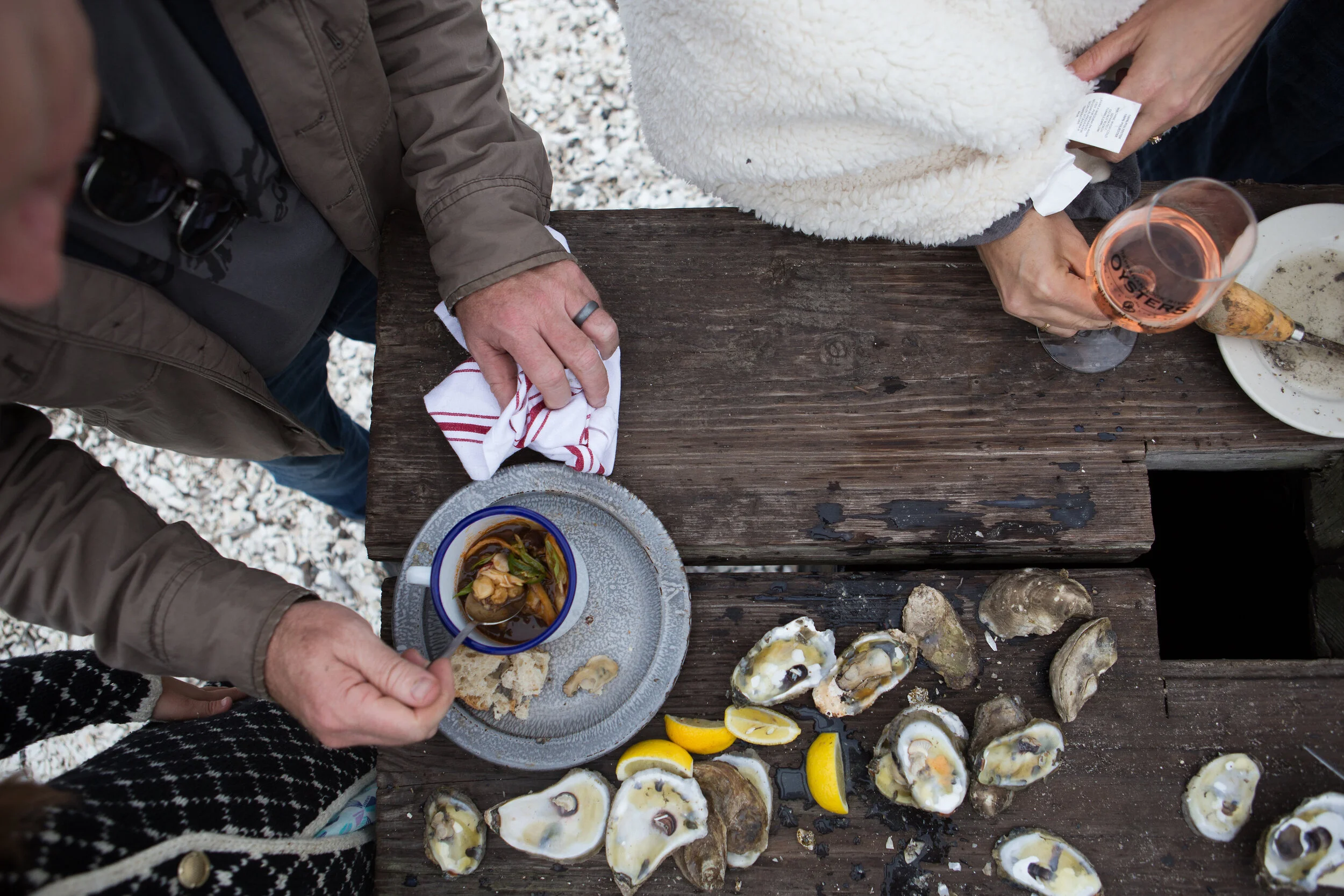What will we be eating in 2050?
/Chefs offer a taste of the food of the future
Story and photos by Linda Wang, Edible DC contributor
Chef Kevin Tien of Emilie’s and his creation of tom yum Blondkopfchen cherry tomatoes with candied okra, lime leaf oil, and fried curry leaves
That we will eat in the future is assured—but what? That’s the challenge nine chefs from local restaurants took up on December 3 with imaginative takes on plant-based dishes inspired by ingredients from around the world, such as Blondkopfchen cherry tomatoes from Germany, breadfruit from the South Pacific region, and Hokkaido pumpkin from Japan.
The Food Forever Experience was a tasting event that capped a day of talks at the inaugural Food Forever Solutions Summit, hosted by Foreign Policy magazine. During the summit, speakers from government agencies, academia, corporations and nonprofits explored solutions to the global challenges facing the future of our food, from the effects of climate change on global food security to the diversity of our crops.
A no-waste falafel from Equinox’s Todd Gray and Ellen Kassoff.
Meera Shekar of the World Bank, who was one of the moderators, says she was glad to see the discussions focusing on solutions rather than the problems. “It’s a step in the right direction,” she says.
During the tasting experience, Todd Gray and Ellen Kassoff, whose restaurant Equinox is 50% plant-based and practices no-waste, created a honeynut falafel with a beet salad, turnip greens, and tahini vinaigrette, accompanied by toasted pita. “What is food of the future?” Gray asks. “Food of the future is what we can do in all of our restaurants and our hotels to have food in the future. We all need to reconsider how we're eating and how we're living our lives.”
Native Chesapeake oysters with a squash mignonette.
Across the room, Kevin Tien of Emilie’s was showcasing his creation of tom yum Blondkopfchen cherry tomatoes with candied okra, lime leaf oil, and fried curry leaves. “It's not enough for chefs to be sustainable,” Tien says. “We have to tell our friends and family and everyone that dines with us that they should also be eating responsibly. If everybody in the world ate one meal or one snack a little bit differently, that makes all the change in the world.”
Meanwhile, Zack Mills of the True Chesapeake Oyster Company was passing out Chesapeake oysters on the half shell with a honeynut squash mignonette. “As chefs and as restaurateurs, we need to constantly be searching for what we can do to help both the environment and climate change as well as what we are serving in our restaurants to make sure that we are doing the right things from an ecological standpoint,” he says.
Tofu in a spicy peanut sauce from Ekiben.
Steven Chu of Ekiben was serving up crispy tofu tossed in a spicy peanut sauce with white icicle radish slaw. “There's a stigma when it comes to vegan food,” Chu says, while pointing out that food cultures around the world are in fact, mostly plant-based. “I'm from Taiwan and my partners are from Ethiopia and India. They have deep-rooted food cultures and really awesome vegan cuisine. The future will be to normalize vegan cuisine, and it’s great to be a part of the change.”
Chef Ralf Schlegel of Plume presented a Hokkaido Pumpkin Bar.
Rounding out the tasting experience, Ralf Schlegel of Plume whipped up a sweet Hokkaido pumpkin bar, Ruth Gresser of Pizzeria Paradiso got creative with escarole soup, Zena Polin of The Daily Dish and The Dish and Dram prepared breadfruit tostones topped with chayote salsa, Erik Oberholtzer of Tender Greens served up an amaranth taboule, and Helena del Pesco of Larder featured sunchokes, also known as the Jerusalem artichoke, in a velvety soup.
Ruth Gresser created an Escarole Soup.
“As chefs, we are actually ambassadors,” says celebrity Carla Hall, who delivered the summit’s keynote address. “I think it's really important for people who don't work in food every day, who are just consumers of food, to realize the power that chefs have as trustworthy voices who can move a market. If we understand our food, we can move the needle on so many different issues.”
And that will keep our tables filled with delicious, healthy, and sustainable food well into the future.
Linda Wang is a professional journalist, editor and photographer. A frequent contributor to Edible DC, Ms. Wang has become a champion of plant-based, sustainable eating. @lindawangphotography










